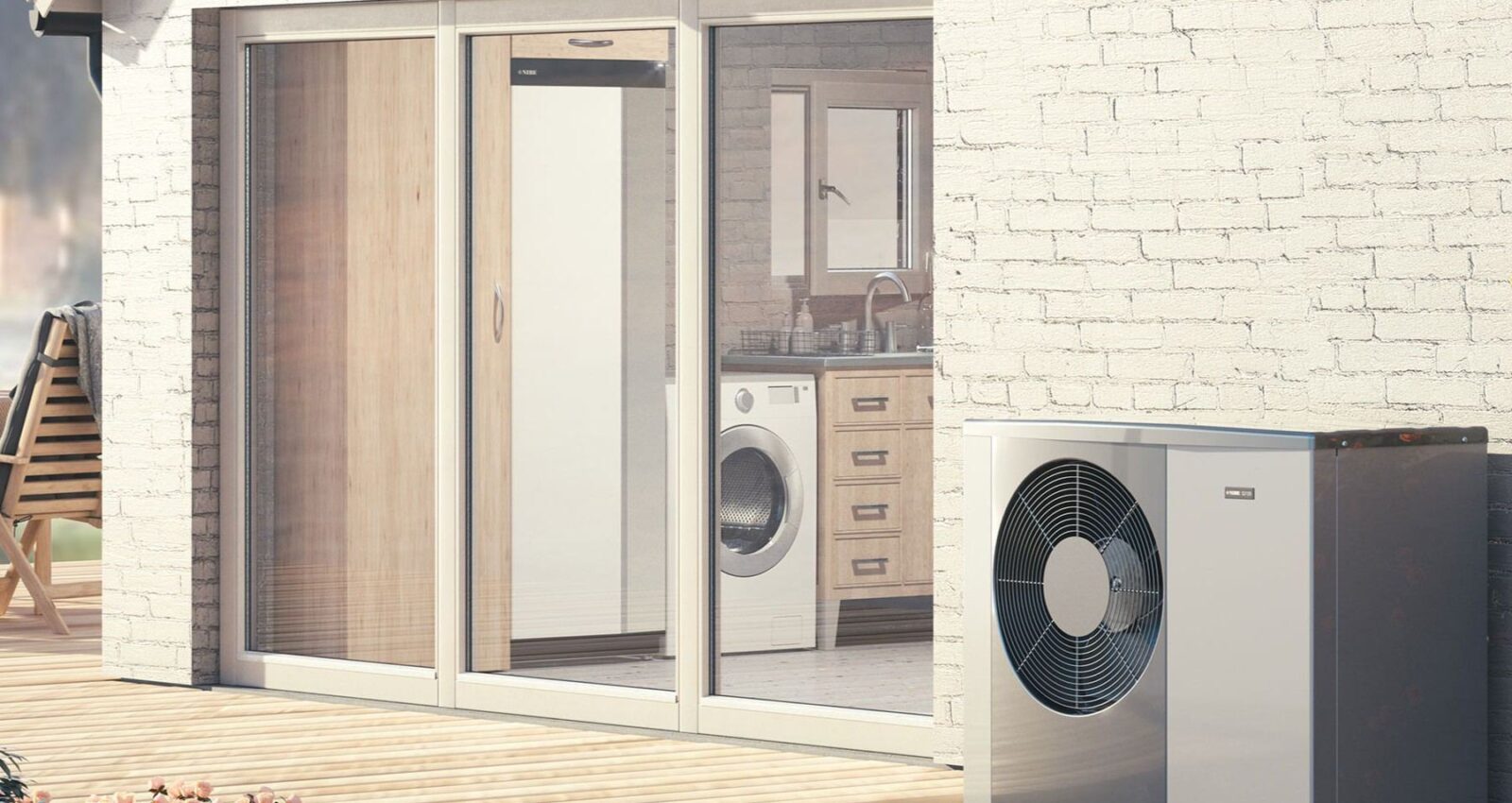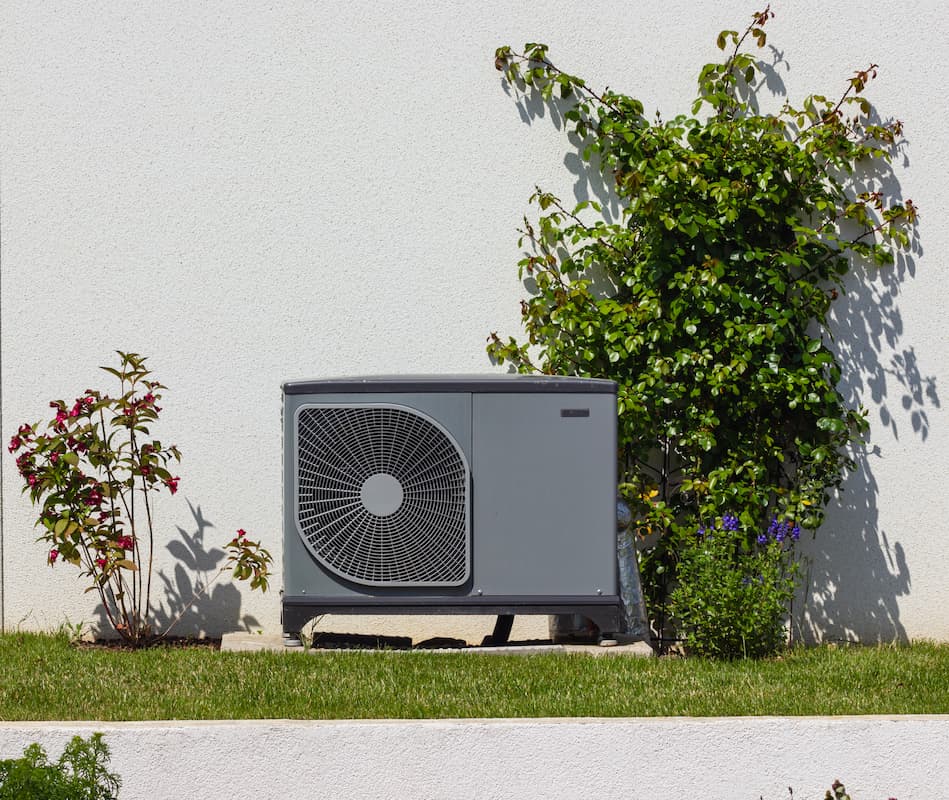Are Air Source Heat Pumps Expensive To Run?

Are you thinking about saying goodbye to fossil fuels and investing in an air-source heat pump? Reliable, efficient and clean, heat pumps are making a name for themselves in the UK, despite some initial reservations.
While most people factor in the outright costs of heat pump installation, they often forget about the long-term expenses.
In this post, we’ll reveal the average running costs of a heat pump and how they compare to your long-term savings.
A quick introduction to air-source heat pumps
You’ve probably heard of air-source heat pumps before. After all, they’re the most popular option in the UK due to their convenience and versatility. These pumps collect heat from the air and turn it into energy, which can then heat or cool a building.
While air-source heat pumps aren’t as consistent as ground-source heat pumps, they’re compatible with a range of building types and won’t take up much space.
Older ASHPs struggled to work in colder temperatures, but modern pumps can work in below-freezing temperatures.
If Scandinavian countries are using them for consistent heat generation, households in the UK have nothing to worry about.
What are the outright costs of a heat pump?
Before breaking down the ongoing running costs, we need to look at how much an air-source heat pump will initially set you back.
On average, you can expect to spend around £10,000, but it depends on your chosen size and whether the installation will be complex.
Households in the UK have access to a range of green energy grants, including the Boiler Upgrade Scheme, which gives eligible applicants up to £7,500 when swapping a fossil fuel system for a heat pump.
Air-source heat pump running costs compared to other heating methods
How much it costs you to run an air-source heat pump depends on multiple factors, and we’ll explore them soon. But first, let’s take a look at how the average running costs compare to oil, electric and gas boilers.
| Heating Solution | Annual Energy Usage | Efficiency | Average Cost |
| Air-Source Heat Pumps | Between 10,000 to 20,000 kWh | Over 300% | £800 to £1,500 |
| Electric Boilers | Between 12,500 and 15 kWh | 100% | £1,500 to £2,000 |
| Oil Boilers | Between 12,500 and 15 kWh | Over 90% | £800 to £1,500 |
| Gas Boilers | Between 12,500 and 15 kWh | 90% | £600 to £1,200 |
Air-source heat pumps win hands down on efficiency and result in lower annual energy usage.
While gas boilers have the cheapest annual cost, they’re also the least sustainable and contribute to carbon emissions.
What might impact an air-source heat pump’s running costs?
Understanding how to reduce the running costs of your air-source heat pump means you can save money while enjoying everything these ingenious machines offer.
Insulation
Poorly insulated properties struggle to retain heat, whether from boilers or heat pumps. Unfortunately, older homes in the UK tend to lack insulation, so your ASHP will need to work harder and longer.
Insulating your property might be an extra expense, but it will pay off in the long run. Remember to focus on your walls, attic and floor, as they often lose heat.
It’s also worth considering whether to upgrade your glazing.
Efficiency
Air-source heat pumps aren’t all made equal. Sure, you can find some cheap options, but will efficiency be an issue? Second-hand heat pumps or older models won’t perform as well as a new pump with the latest technology.
When choosing an installation service, remember to check for awards and accreditations, customer reviews, and guarantees. That way, you can be sure that you’re investing in quality.
Installation
As heat pumps are relatively new, finding an MCS-certified installation service with experience in renewable energy is vital. Failing to fit the pump correctly means it might need to work harder for heat generation.
Heating demands
Your air-source heat pump should satisfy your property’s heating demands, but it’s easy to choose the wrong size. For example, a lower output model may cost less initially, but will it provide enough heat for your home?
Larger properties have much higher heating demands than smaller homes. That’s why it’s vital to choose the right size.
While modern heat pumps operate in below-freezing temperatures, they might need to work harder during the winter, which can increase their running costs.
How much money can I save by installing an air-source heat pump?
The amount you can save with an air-source heat pump depends on the type you install and whether your property has sufficient insulation. According to the UK government, an average household can save between £200 and over £1,000 annually.
While this might not seem huge, heat pumps generate clean energy and don’t rely on a gas supply.
We all know that electricity costs more than gas, and air-source heat pumps need it to run. BUT, if you’re willing to install solar panels, the annual savings could be much larger.
Solar panels and air-source heat pumps
Air-source heat pumps can feed off of your main electricity supply, but installing solar panels means you can save more money each year. Solar panels use sunlight to generate electricity, making them a clean energy source.
Your heat pump can use the electricity the panels generate to produce heat for your property, reducing your reliance on the grid.
Another major selling point of combining solar panels and heat pumps is the ability to achieve energy independence.
Adding battery storage to your system also means you can store excess electricity and use it during the evening or on cloudy days.
The bottom line
Air-source heat pumps will continue to play a major role in greener living. Their ability to preserve valuable resources and create clean energy means more properties will embrace them in the years to come.
Acting now means taking advantage of the Boiler Upgrade Scheme and saving money on your installation costs. Geowarmth specialises in renewable energy solutions, including air-source heat pumps and solar panels.
If you’re interested in saving money AND achieving energy independence, please get a quote today.


